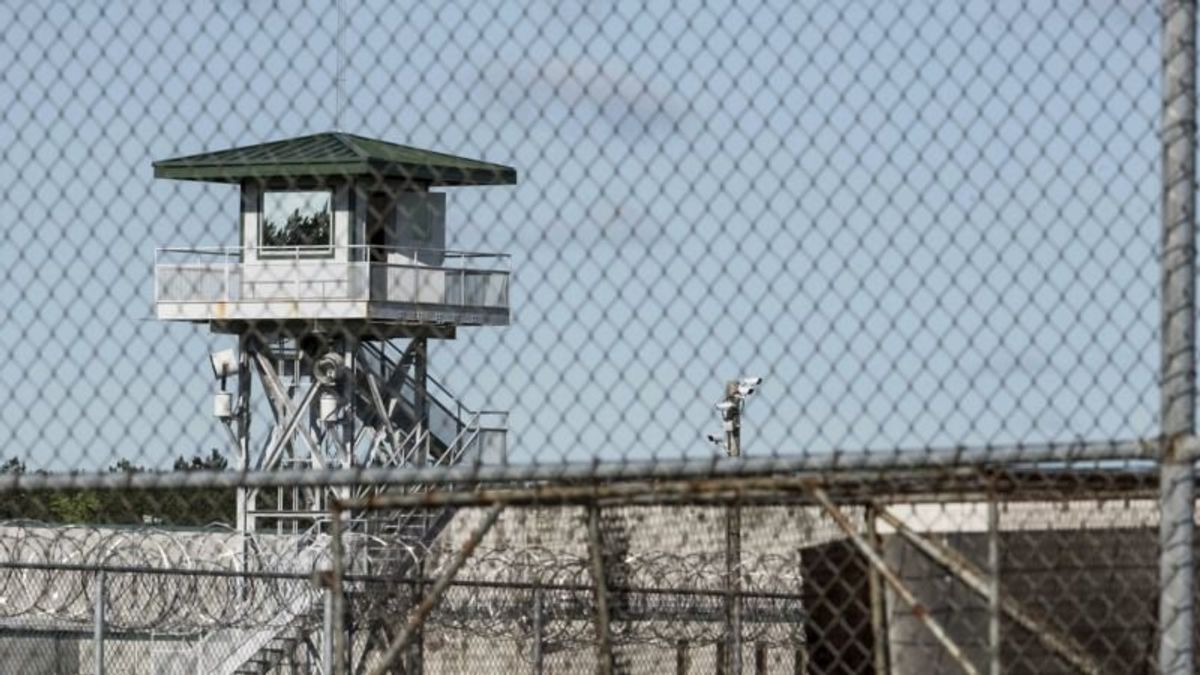
US Senate Advances Criminal Justice Reform
US Senate Advances Criminal Justice Reform

CAPITOL HILL —
The U.S. Senate advanced a bipartisan bill Monday that would decrease America's large prison population by lowering some mandatory federal sentences and giving prisoners added opportunities to earn reductions in jail time.
With the 82-12 procedural vote, the Senate formally took up the First Step Act, which is backed by President Donald Trump but has fewer than two weeks to reach his desk before the end of the current Congress.
"This landmark legislation restores fairness in sentencing by ensuring that penalties fit their crimes, gives low-level, non-violent offenders a better chance to turn over a new leaf upon release from prison, and ultimately reduces crime and makes our streets and neighborhoods safer," Senate Judiciary Committee Chairman Chuck Grassley, an Iowa Republican, said in a statement.

"These historic changes will make communities SAFER and SAVE tremendous taxpayers dollars," Trump tweeted. "It brings much needed hope to many families during the Holiday Season."
The First Step Act would retroactively end the discrepancy in federal sentences for drug offenses involving crack and the powder form of cocaine, reducing jail time for thousands of prisoners already serving time for crack offenses.
The bill also would reduce some mandatory sentences, give federal judges more flexibility to make exceptions to mandatory prison terms, and allow prisoners to earn greater sentence reductions through good behavior and vocational training.
"The vast majority of prison inmates will one day be released back into our communities after serving their sentence," Grassley said. "It is in everyone's best interest to equip inmates with the skills and training needed to be become productive citizens, rather than returning to a life of crime."
Proponents say the bill aims to correct a failed 1980s-era attempt to deter illegal drug use that established long mandatory prison sentences for drug convictions.

"Since 1980, the federal prison population has grown by over 700 percent," Illinois Democrat Dick Durbin said. "Today, the United States of America holds more prisoners by far than any country in the world, more than Russia or China."
Durbin added that existing law has unfairly targeted people of color, saying, "The majority of illegal drug users and dealers in America are white. But three-quarters of the people serving time in prison for drug offenses are African-American or Latino."
The House of Representatives passed a similar version of the bill earlier this year. Now, the Senate is racing to complete work on the legislation before the chamber adjourns for the Christmas holiday.
Criticism of bill
The First Step Act has robust but not universal Senate support in its current form. Arkansas Republican Tom Cotton is demanding the bill stipulate that some prisoners will be barred from early release.
"Unfortunately, the bill still has major problems & allows early release for many categories of serious, violent criminals," Cotton tweeted. "This includes felons who commit violent bank robberies with dangerous weapons, who assault children, & who commit carjacking with the intent to cause death."

Cotton and several other Republicans are pressing an amendment that would specify which offenders are ineligible for sentence reductions, something that proponents of the First Step Act say the bill already sets forth.
"This bill will not allow dangerous, violent criminals to be released early — that [assertion] is pure fiction," said the Senate's No. 2 Republican, John Cornyn of Texas. "It's important that we look at people who are low risk of recidivism [committing more crimes] and low risk to public safety, because what we can do is use the resources — not to keep people like that behind bars unnecessarily — but to focus on the truly violent criminals."
America's prison population exceeds 2 million people, and incarceration consumes vast resources within the nation's justice system. Even if it becomes law, the First Step Act would have a modest impact on incarceration numbers, as the bill only applies to federal inmates, who account for less than 10 percent of the national total. Other initiatives seek to achieve similar results at the state level.
Support for bill
A wide array of law enforcement organizations support the bill, as do both right-leaning and left-leaning advocacy groups.
Durbin hailed "the most extraordinary political coalition I've ever witnessed in the time I've been in Washington" joining forces to back the legislation.
"Every once in a while, the stars line up, and the Democrats and the Republicans, and the conservatives and the progressives, and the president and the Congress agree on something," the Illinois Democrat said.
 Ex-FBI Chief Comey: Trump Undermines Rule of Law with ‘Lies’Next PostGOP Waits on Trump as Clock Ticks Toward Partial Shutdown
Ex-FBI Chief Comey: Trump Undermines Rule of Law with ‘Lies’Next PostGOP Waits on Trump as Clock Ticks Toward Partial Shutdown







